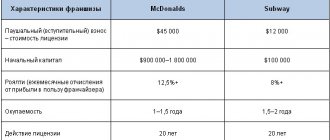What else needs to be considered
An appeal is a way to challenge a court decision with which one of the parties does not agree. The complaint is filed against a court decision that has not yet entered into legal force, and the deadlines for appealing are very short. Therefore, it is important to pay the state fee correctly in order for the complaint to be accepted for processing.
Appeal in a civil case considered by a court of general jurisdiction
The amount of the state fee for filing an appeal in a civil case against a decision of a magistrate or a district court of general jurisdiction is established by paragraphs. 9 clause 1 art. 333.19 of the Tax Code of the Russian Federation: 50% of the state duty payable when filing a claim of a non-property nature, namely:
- for individuals - 150 rubles;
- for organizations - 3,000 rubles.
In this case, it does not matter whether the appeal is filed against a decision on a property dispute, a dispute that is not subject to assessment, or against a decision of the court of first instance on a claim of a non-property nature.
Appeal against the decision of the arbitration court
The state fee for an appeal against a decision of an arbitration court on an economic dispute is also set at 50% of the state fee for filing a claim of a non-property nature. The amount of state duty for arbitration courts is provided for in Article 333.21 of the Tax Code of the Russian Federation (subparagraphs 4 and 12 of paragraph 1) and is 3,000 rubles.
The state fee in the specified amount is paid regardless of whether the applicant under the complaint is an organization - a legal entity, or an individual - an individual entrepreneur.
The state fee is paid for filing an appeal in relation to:
- decisions and rulings of the arbitration court in the case;
- rulings on refusal to accept a claim;
- rulings to leave the claim without consideration,
- in the case of challenging the decisions of the arbitration tribunal,
- in cases of issuing writs of execution for the forced execution of arbitration court decisions, as well as refusal to issue writs of execution.
Payment of state duty for other acts of the arbitration court depends on whether the corresponding application was paid with state duty during consideration in the first instance. For example, in bankruptcy cases, a number of court rulings can be appealed without paying a state fee.
Appeal in an administrative case
Cases according to the rules of the Code of Administrative Proceedings (CAC) are considered by courts of general jurisdiction, with the exception of cases within the competence of arbitration and constitutional (statutory) courts (Article 19 of the CAS of the Russian Federation). Administrative cases include challenging regulatory legal acts, actions and decisions of officials, collection of mandatory payments and sanctions on the basis of the Tax Code of the Russian Federation and other disputes of a public law nature, the list of which is given in Article 1 of the CAS of the Russian Federation. Most of these cases are considered at first instance by district courts or magistrates, but some cases are authorized to be considered by district and regional courts and the Supreme Court of the Russian Federation.
Appeals against decisions made through the appellate procedure are made to a higher court of general jurisdiction.
Depending on who files the appeal in the administrative case, the state fee is paid in the amount of:
- 150 rubles for individuals (including individual entrepreneurs) and
- 3000 rubles for legal entities (Article 333.19 of the Tax Code of the Russian Federation).
Appeals for some types of cases are not subject to state duty. Also, the state fee is not paid if the applicant has benefits.
Complaint against a decision in a case of an administrative offense
Administrative cases regarding offenses provided for by the Code of Administrative Offenses of the Russian Federation, depending on the type of case, can be considered by magistrates, judges of district courts, garrison military courts, or by arbitration courts or other government bodies (Article 23.1 of the Code of Administrative Offenses of the Russian Federation). The decision made can be appealed according to the rules established by Art. 30.1 Code of Administrative Offenses of the Russian Federation:
- if made by a judge - to a higher court (of general jurisdiction or arbitration);
- if accepted by a collegial body - to the district court at its location;
- accepted by an official - to a higher body or official, to a specially authorized body or to the district court at the place of consideration of the case;
- if accepted by authorities created in accordance with the law of a constituent entity of the Russian Federation - to the district court at the place of consideration of the case.
A complaint against a resolution or decision in a case of an administrative offense is not subject to state duty (Article 30.2 of the Code of Administrative Offenses of the Russian Federation, paragraph 4 of Article 208 of the Arbitration Procedure Code of the Russian Federation, Resolution of the Plenum of the Supreme Court of the Russian Federation dated March 24, 2005 No. 5 “On some issues arising in the courts when applying the Code of the Russian Federation on Administrative Offenses”).
Decisions of officials made as a result of an appeal can be appealed to a court, and if the case has already been considered by a court, to a higher court according to the rules of Article 30.9 of the Code of Administrative Offenses of the Russian Federation. When filing subsequent complaints (including appeals and cassation), the state duty is also not paid (clause 3 of Article 30.9 of the Code of Administrative Offenses of the Russian Federation).
In a criminal case
Appeals against sentences and decisions in criminal cases are carried out in the manner established by the Code of Criminal Procedure of the Russian Federation. Complaints are filed without paying a state fee.
Brief (preliminary) appeal
A preliminary or short appeal is filed in cases where the applicant needs to begin the appeal procedure as soon as possible (so that the period for appeal does not expire). Often such complaints are filed immediately after the announcement of the operative part of the court decision, without waiting until the full decision with the reasoning part is ready. A detailed appeal is subsequently filed.
Expert opinion
Lawyer Alexander Vasiliev comments
Procedural codes do not provide for any special rules on deferment of payment of state fees on preliminary appeals. If the complaint is subject to payment of a state fee, it must be paid before sending the document to the court. Otherwise, the court will leave the complaint without progress (see, for example, the Determination of the Primorsky Regional Court of February 9, 2015 in case No. 33-940/2015).
Simplified production
Arbitration courts consider cases in a simplified procedure (Chapter 29 of the Arbitration Procedure Code of the Russian Federation) in cases where the value of the claim is small (100 or 200 thousand rubles, depending on the type of dispute). A decision made in summary proceedings may be appealed to the arbitration court of appeal. Such an appeal is subject to state duty according to the general rules established by Art. 333.21 of the Tax Code of the Russian Federation (clauses 4 and 12) in the amount of 3,000 rubles.
Appeal in a case challenging the actions of a bailiff
When filing both administrative claims in the first instance and applications to challenge decisions, actions or inactions of bailiffs, the state fee is not paid - both in cases of arbitration courts and in courts of general jurisdiction (clause 7, clause 1, art. 333.36 of the Tax Code of the Russian Federation, Resolution of the Plenum of the Supreme Court of the Russian Federation dated November 17, 2015 No. 50 “On the application of legislation by courts when considering certain issues arising during enforcement proceedings”).
What state duty does an individual entrepreneur pay?
When filing an appeal against a decision of a magistrate or a court of general jurisdiction, an individual entrepreneur pays a state fee in the amount established for individuals.
Expert opinion
Lawyer Alexander Vasiliev comments
The Tax Code of the Russian Federation does not provide for special amounts of state duty for individual entrepreneurs. In accordance with the law, an individual entrepreneur is not a legal entity. Therefore, he pays a fee in the amounts established for individuals (“Review of judicial practice of the Supreme Court of the Russian Federation No. 1 (2016)” (approved by the Presidium of the Supreme Court of the Russian Federation on April 13, 2016) - i.e. 150 rubles. In arbitration courts, a single The amount of the state fee for appeals for all applicants who do not have benefits is 3,000 rubles.
Benefits for some applicants
Disabled people
Disabled people of groups I and II are exempt from paying state fees on appeals in cases considered by the Supreme Court of the Russian Federation, courts of general jurisdiction, and justices of the peace (Clause 2, Part 2, Article 333.36 of the Tax Code of the Russian Federation)
Combat veterans
In accordance with subparagraph 3 of paragraph 2 of Art. 333.36 of the Tax Code of the Russian Federation, combat veterans and military service veterans are exempt from paying state fees when filing appeals if they seek protection of their rights directly established by the legislation on veterans (in particular, paragraph 1 of Article 16 of the Federal Law of January 12 1995 No. 5-FZ “On Veterans”). For other types of cases, exemption is not provided for them, and the state duty must be paid in the required amount.
Filing an appeal by an employee in a dispute with an employer
An employee who appeals to the court in a case of recovery of wages, reinstatement at work and other protection of his rights is exempt from paying state duty on the basis of paragraphs. 1 clause 1 art. 333.36 Tax Code of the Russian Federation. This benefit does not apply to the employer.
State fee for filing appeals for certain types of cases
Consumer
Plaintiffs in claims related to violation of consumer rights are exempt from paying state fees (clause 3 of article 17 of the Law of the Russian Federation of February 7, 1992 No. 2300-1 “On the Protection of Consumer Rights”, as well as subclause 4 of clause 2 of article 333.36 Tax Code of the Russian Federation). This benefit is not limited only to appealing to the court of first instance. It also applies to exemption from paying state fees when filing appeals and cassation complaints.
This provision provides benefits only to citizens and consumers who go to court to protect their rights. If a claim or appeal is filed by another person (acting against a citizen-consumer), the benefit does not apply to him.
State fee for reinstating the deadline for appeal
A petition to restore the deadline for filing an appeal is not subject to state duty, since the Tax Code does not establish the amount of state duty for such appeals.
Loan appeal
The state fee for filing an appeal is set at the same amount for both property and non-property claims. Therefore, regardless of the size of the disputed loan, the state fee for the appeal is paid:
- in civil proceedings in a court of general jurisdiction: for citizens - 150 rubles; for organizations - 3,000 rubles (Article 333.19 of the Tax Code of the Russian Federation).
- in arbitration proceedings: 3000 rubles (Article 333.21 of the Tax Code of the Russian Federation).
Appeal of disputes in accordance with the Tax Code of the Russian Federation
When considering disputes about invalidating decisions of tax authorities and assessing additional taxes, as well as filing appeals, tax authorities (inspectorates) are exempt from paying state fees:
- in the arbitration process on the basis of Art. 333.37 Tax Code of the Russian Federation;
- in civil proceedings on the basis of paragraphs. 19 clause 1 art. 333.36 Tax Code of the Russian Federation.
Compensation for moral damage
The state fee for filing an appeal against a court decision in a case of recovery of compensation for moral damage is paid in the usual amount established for courts of general jurisdiction. Depending on the category of the case and the availability of benefits, the applicant may be exempt from paying it.
Appeal for divorce
When filing appeals on claims for divorce, the parties are exempt from paying state fees (clause 6, clause 1, article 333.36 of the Tax Code of the Russian Federation).
Appeal in the case of division of property
The state fee for filing an appeal against a court decision in a case on the division of property of spouses is paid in the usual amount established for courts of general jurisdiction. Depending on the category of the case and the availability of benefits, the applicant may be exempt from paying it.
Appeal against refusal to enter into the case of a third party
The law does not provide for the payment of a state fee for filing an appeal against a refusal to join a case by a third party who does not make independent claims regarding the subject of the dispute (Resolution of the First Arbitration Court of Appeal dated January 31, 2021 in case No. A11-6159/2018).
Appeal against the actions of the bailiff
An appeal against a court decision in a case regarding an application to challenge the actions (inaction) and decisions of a bailiff is filed without paying a state fee in accordance with the third paragraph. 7 clause 1 art. 333.36 of the Tax Code of the Russian Federation (Definition of the Judicial Collegium for Administrative Cases of the Supreme Court of the Russian Federation dated August 27, 2014 No. 91-KG14-3).
Complaint against a ruling on interim measures
A complaint against a court ruling on interim measures is not subject to state duty in accordance with Art. 333.36 Tax Code of the Russian Federation.
How can I pay, methods
You can pay the state duty in Russia in completely different ways, choosing the closest option for yourself. For example, it is convenient for someone to contact the bank’s cash desk with their details, but for those who live remotely, an option would be an i-box or a terminal or an ATM.
Payment through a bank cash desk
One of the options that is relevant for the majority is the cash desk of Sberbank of Russia. It is always available and there are numerous branches throughout the country, even in sparsely populated villages. Sberbank terminals are no less in demand than cash registers, especially among those who can handle the automated system quite independently and can enter details on the screen. This is in part more suitable for young people and the middle generation, who are more likely to encounter computers.
This is important to know: Claim proceedings in civil proceedings: concept and example
Whatever option the payer chooses, the main and mandatory rule is to correctly enter the details for making the payment. If you make a mistake, the money to pay the state fee may go in the wrong place, or it may get stuck in the system, and it may be difficult to get it back. In this case, you will have to write a statement to the bank about incorrectly providing payment details and wait for a refund.
You can always file a claim in court, but it will not be accepted without paying a state fee. This is a prerequisite in most legal proceedings. However, there are situations where the party filing the complaint or claim is exempt from paying the fee. You can also later return the money spent on state duty.
Expert opinion
Zakharov Viktor Yurievich
Practicing lawyer with 8 years of experience. Specialization: family law. Recognized legal expert.
Who should pay the fee?
In accordance with current legislative requirements, a payment document indicating the fact of transfer of the fee must be attached to the statement of claim, complaint, petition, etc. Consequently, the obligation to pay the deduction in question falls on the shoulders of the citizen filing an appeal against the decision made by the court of the previous instance.
However, based on the results of the appeal proceedings, the payment procedure may be reviewed by the court. The options are as follows:
- the court regards the appeal as legitimate and satisfies the demands of its author - the other party to the proceedings is obliged to compensate the costs;
- the court does not satisfy the appeal requirements - the money is not returned to the applicant;
- The appeal is partially granted by the court - the fee is distributed among the participants in the proceedings. The calculation is carried out in accordance with the percentage of the appeal granted. For example, if the applicant put forward 3 demands and 2 of them were satisfied, the second party to the proceedings will recover 2/3 of the amount of the state encumbrance. Section 333.36. Benefits when appealing to the Supreme Court of the Russian Federation, courts of general jurisdiction, and magistrates
This is important to know: Appealing a private court ruling in a civil case: sample 2021





